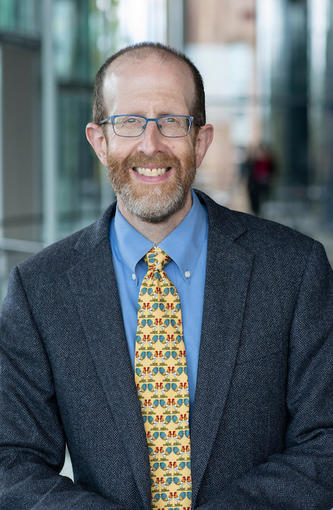
Courtesy of the Yale School of Medicine
As the COVID-19 crisis grips the nation, Howard Forman, professor of Public Health, Radiology and Management, has been pushing for Congress and the White House to implement protective measures.
On March 12, Forman and several co-authors published recommendations to lawmakers for a set of emergency public health, healthcare and support measures to respond to the growing COVID-19 outbreak crisis. In the short-term, the team’s recommendations are geared towards those who have experienced disruptions either directly from COVID-19 infection or indirectly from job loss. In the long-term, the recommendations aim to bolster public health infrastructure in an effort to be better prepared for future pandemics.
“Our [healthcare] safety net is very porous, and our 30 million uninsured people are at risk,” Forman said. “It is through policies like this that we can fill in the gaps that exist even in the best of times, and we need to do better to take care of everybody.”
The proposal calls for employers to provide paid sick leave and for insurance providers to provide consistent, nondiscriminatory and comprehensive coverage for COVID-19 patients. It also seeks to strengthen Medicaid capacity for the uninsured as well as residents of Puerto Rico, the Virgin Islands and other U.S. territories.
The recommendation highlights that vulnerable populations — which include low-income families, community health centers, homeless persons and undocumented individuals, among others — should receive financial assistance if they seek care for COVID-19. It also prioritizes support for front-line healthcare workers and an appropriate supply of personal protective equipment, ventilators and other medical supplies.
“Protecting Americans’ health in this time of crisis should be a unifying effort,” the March 12 recommendation read. “It should not be and cannot be divisive.”
In the recommendation, Forman and his co-authors also called for innovative approaches such as increased telemedicine coverage, temporary coronavirus-specific clinics and drive-through testing. In addition, they proposed the creation of a COVID-19 testing and treatment database, which would include real-time data on the state of supplies and access to healthcare.
The recommendations helped shape the Families First Coronavirus Response Act — signed into law by President Trump on March 18 — which included provisions for paid sick leave, free testing, expanded unemployment benefits and increased funding for nutrition assistance programs.
On March 18, the same day that President Trump signed the Act, the same team published a second proposal, prompted by the inadequate attention that the Act gave to vulnerable populations. Although the Act improves coverage for COVID-19 testing, it does not require that insurers cover visits to a doctor’s office or the emergency department that do not include a test, and it does not provide coverage for individuals enrolled in short-term limited duration insurance plans for COVID-19 treatment and related services.
The second set of recommendations urged policymakers to provide comprehensive COVID-related medical coverage for all uninsured individuals. It also pointed out that the Act did not adequately address incarcerated vulnerable populations and plans to improve public health infrastructure.
“We believe some of those [missing healthcare] issues will be addressed in the second bill, which is expected to pass in the house in the coming weeks,” Forman said.
School of Public Health Dean Sten Vermund praised Forman and his co-authors as a “great example of effective academic activism.”
“For years we have been beating the drum for a need to prepare for such a pandemic,” Vermund said. “Unfortunately, the global community has not taken those warnings seriously, so we find ourselves without the essential personal protective equipment supply and an undue burden on our healthcare system.”
Forman underscored the importance of top leaders not only acknowledging the crisis and addressing it through policy but also disseminating correct information about the virus and its implications.
“I believe if you have thoughtful forceful rhetoric from the top that educates and shows transparency, people will listen,” Forman said. “Failure occurs when rhetoric is confusing. There is a large swath of our country that does not take it [COVID-19] as a serious threat and that is what we need to battle the most. There is significant misinformation about the scope and scale of the pandemic which is dangerous, and this is where leadership can make the most difference.”
On March 11, the World Health Organization declared COVID-19 a global pandemic. Since the virus was first identified in December of last year, it has spread across the world and to all 50 U.S. states.
Richa Attre | richa.attre@yale.edu







